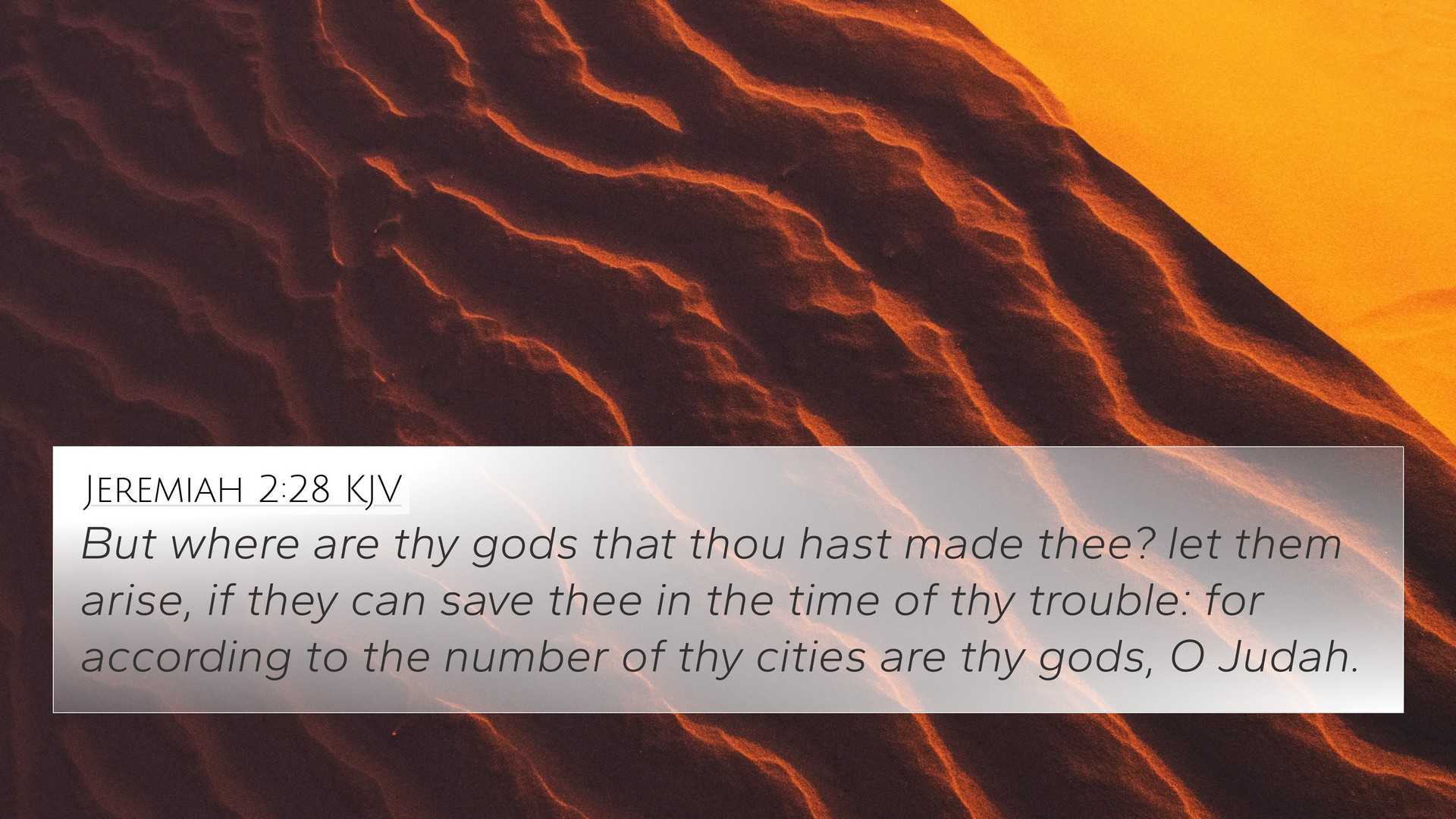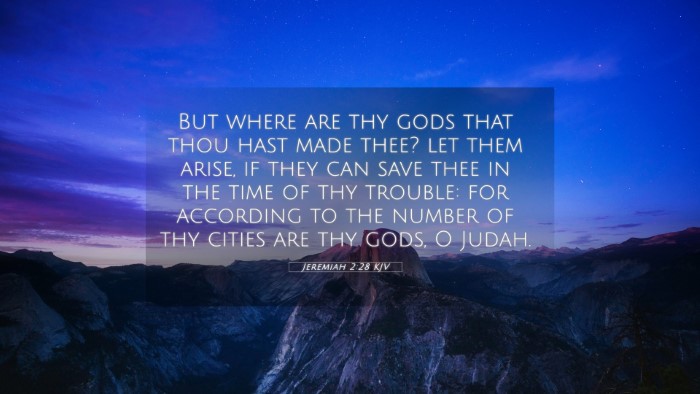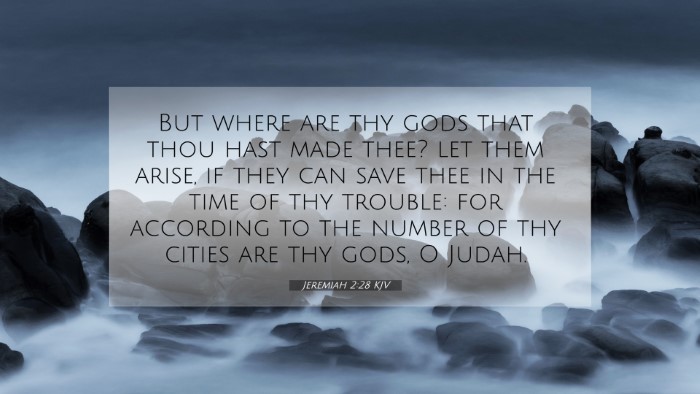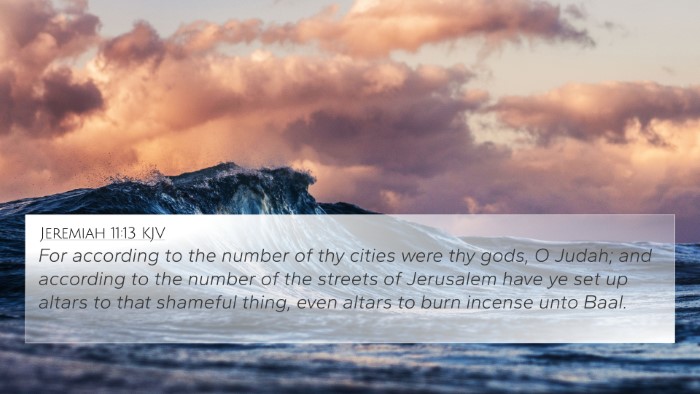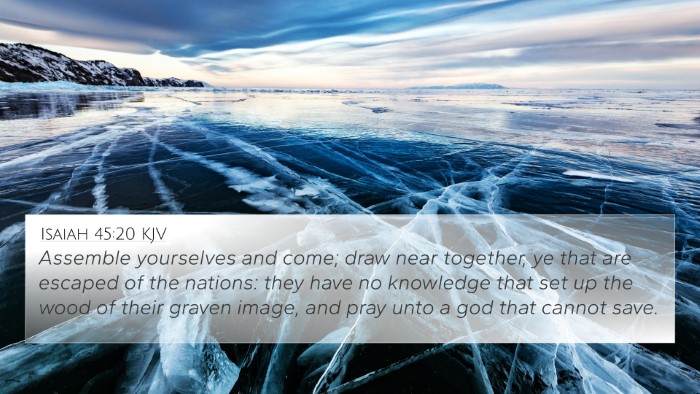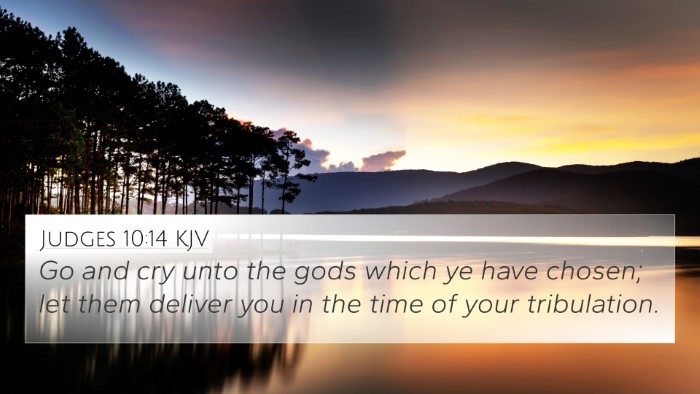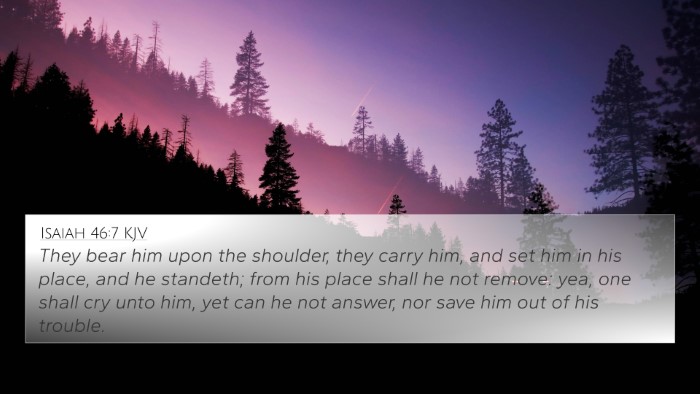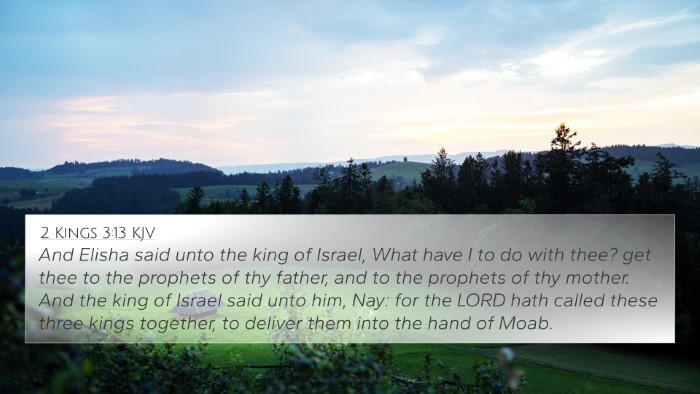Understanding Jeremiah 2:28 - A Comprehensive Analysis
Jeremiah 2:28 states: "But where are your gods that you made for yourselves? Let them arise, if they can save you in your time of trouble! For as many as your cities are your gods, O Judah." This verse addresses the Israelites' reliance on false gods and their neglect of the true God, reflecting the spiritual crisis faced by the nation.
Importance of Context
To fully grasp the significance of Jeremiah 2:28, understanding its context within the book of Jeremiah is crucial. The prophet Jeremiah speaks during a time of great moral decay and spiritual apostasy in Judah. The surrounding verses illustrate God's disappointment with His people for turning away from Him to worship idols.
Summary of Commentator Insights
- Matthew Henry: He emphasizes the absurdity of idol worship, remarking that these false gods cannot offer any help when troubles arise. Henry highlights the futility in turning to man-made idols instead of the living God.
- Albert Barnes: Barnes points out that the mention of “as many as your cities are your gods” signifies the widespread idolatry in Judah. He interprets this as a rebuke of the nation's incomplete reliance on gods of their own making, which ultimately leads to their downfall.
- Adam Clarke: Clarke elaborates on the historical background, illustrating the Israelites' frequent backsliding into idol worship. He indicates that the verse serves as an admonition, encouraging the people to return to God rather than relying on their own creations.
Key Themes in Jeremiah 2:28
The verse encapsulates several themes prevalent in Jeremiah’s prophecies:
- Idolatry: The central theme of the verse is the critique of idol worship, indicative of a broader trend among the people of turning away from the Lord.
- Empty Reliance: It underscores the emptiness of relying on anything other than God for salvation and help in times of trouble.
- Divine Judgment: The prophetic warning hints at impending consequences for the people's spiritual neglect and prompts reflection on divine justice.
Bible Cross-References
This scripture can be linked to various other passages that illuminate its meaning and reinforce its themes. Here are some significant cross-references:
- Exodus 20:3-5: The commandments regarding having no gods before God and the prohibition against making idols.
- Isaiah 41:24: A critique of idol makers, reminding the people that their idols cannot save them.
- Psalms 115:4-8: A description of the impotence of idols and a reflection on the futility of placing faith in them.
- Hosea 8:5-6: A commentary on Israel’s idolatry and the consequences that ensue as a result.
- Jeremiah 10:14: The folly of idol worship is further emphasized, likening idolaters to the objects of their worship.
- Acts 17:29-30: The New Testament perspective on idolatry, emphasizing God's call for repentance.
- 1 Corinthians 8:4-6: Paul’s teachings on the nature of idols, reiterating that they have no real existence.
Connections Between Bible Verses
Exploring the connections between Jeremiah 2:28 and other Bible verses helps form a deeper understanding of its significance:
- Thematic Links: The theme of idolatry is prevalent throughout Scripture, from the Old Testament law to New Testament teachings against idol worship.
- Comparative Analysis: Comparing this passage to others like Isaiah 44:9-20 provides rich insights into the ludicrous nature of idol worship.
- Inter-Biblical Dialogue: Noting how various authors address the concept of false gods fosters an appreciation of the unified narrative regarding worship and reliance on God.
Tools for Bible Cross-Referencing
Utilizing cross-referencing tools can enhance one’s study of Jeremiah 2:28:
- Bible Concordance: Lists of words and their occurrences, useful for finding themes and connected verses.
- Bible Cross-Reference Guide: Helps identify relationships among passages, specifically about idolatry and God's sovereignty.
- Cross-Reference Bible Study: A method that encourages looking at Scriptures in tandem for enlightenment.
Conclusion
Jeremiah 2:28 serves as a profound reminder of the consequences faced when God's people turn to idolatry. The themes of reliance, judgment, and the call to repentance resonate throughout the entire Bible, reinforcing the timeless truth that seeking help from false gods leads to spiritual desolation. In studying this verse, practitioners can employ tools for Bible cross-referencing to explore rich connections throughout Scripture, deepening their understanding of God's message.
